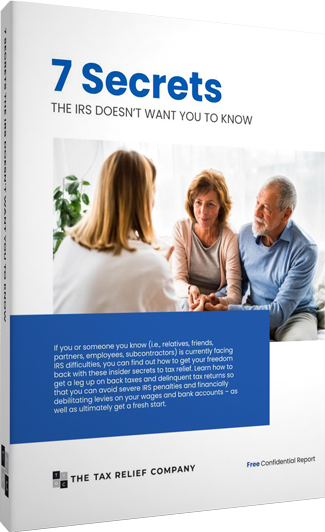Barney and Betty have been married for 20 years and have filed as married for all of those years. Different companies employed them each, and when the pandemic hit, they were both furloughed and remain unemployed. They haven’t yet filed 2018 or their 2019 taxes and have no plan to do so. Betty wants to file, but Barney says that they will owe money for both years, and they do not have the money to pay up. However, Barney thinks that because of COVID, they will get away with not filing and paying their tax liability. Betty decided to go along with her husband and not file separately.
The IRS is still expecting folks in their situation to file and pay what they owe.
Folks may not pay taxes for a host of reasons. Taxpayers may think that they will not owe anything, and simply don’t file. Or the preparation cost may be more than what they owe or what they are expecting as a refund. A recent divorce or death may make the process confusing, and they don’t file. You may know that you will owe taxes and may try to avoid the tax liability by not filing. Whatever the reason, the consequences of not filing taxes can be severe.
What happens if you never file your taxes?
There are several consequences that you may face for not paying taxes or filing tax returns. Some of these include:
Failure to File Penalty
The IRS can impose a failure to file penalty if you do not file by the filing deadline. While you may not have the funds to pay your taxes on the filing deadline, you will only face more penalties if you do not file on time. The penalty for filing late is generally five percent of the unpaid taxes for each month that a return was late. However, the cap on this penalty is 25 percent of the unpaid taxes. The minimum amount of the penalty is the smaller of $135 or 100 percent of the unpaid tax if you file the return more than 60 days after the original or extended due date. The IRS recommends that you pay as much as you can pay and then work on securing one of the options discussed below.
Failure to Pay Penalty
The Internal Revenue Service can also impose a penalty if you fail to pay by the due date. Typically, the failure to file penalty is more than this penalty. Normally, this penalty equals .5 percent of the unpaid taxes for each month after the due date – this penalty caps at 25 percent of the unpaid taxes. Only receiving an extension of time to file does not mean that you are not responsible for paying the taxes. If you receive an extension to file and pay 90 percent of the actual tax liability by the original due date, you will not face a failure to pay the penalty. Providing the rest of the balance is paid by the extension date.
Exceptions to These Penalties
These penalties will not apply if you do not owe taxes and expect a refund, and do not file a tax return on time.
Additionally, the IRS will not impose these penalties if you can show your failure to pay or file was due to reasonable cause and not due to willful neglect.
Back Taxes
If you have not paid taxes for several years and had a tax liability for those years, the IRS will want to receive as much of this unpaid debt as possible. You will also owe interest on the outstanding amount of taxes.
Not Receiving Tax Refund
You can only file tax returns for the last three years to receive a refund. This same principle does not apply if you owe taxes. Additionally, if you file a new return that would equal a refund, it can offset the taxes you owe.
Prison Time
In some cases, the Internal Revenue Service will recommend that someone be prosecuted for tax fraud if the taxpayer has not paid taxes. However, the possibility of that individual being incarcerated and not paying the balance may deter someone from going in this direction. The IRS has mechanisms in place to allow individuals to come forward about their unpaid tax debt. Talking to a certified tax resolution specialist can help individuals learn about their rights and options.
How to Pay Your Tax Liability
Often, a person may be unable to pay all of the back taxes owed at one time. The IRS has several payment options, including:
Installment Plans
You may be eligible to enter into a properly structured installment plan with the IRS in which you make weekly or monthly payments until the amount of back taxes is paid in full.
Offers in Compromise
The IRS may accept a smaller amount to settle the debt now rather than rely on alternative enforcement measures like seizures or garnishments. Talk to a certified tax resolution specialist to determine if this is your best course of action.


